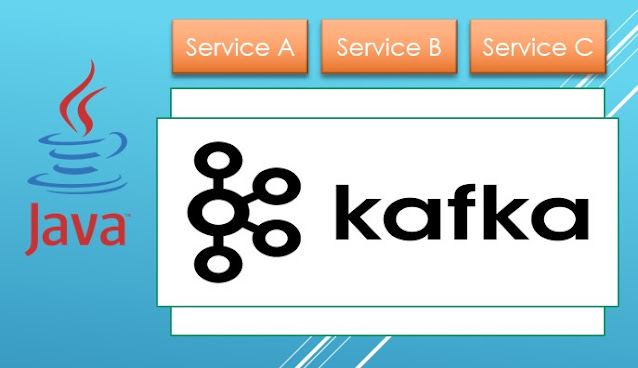Push Notification Cordova, FCM And PHP
This post is about how to create a push notification in mobile app, using Cordova, firebase cloud messaging (FCM) and PHP as a server-side programming language. And we are gonna use cordova-plugin-fcm-with-dependecy-updated as a cordova plugin. An here's the step.
- Register a FCM project, and set your app id as, com.exampleyourprojectid.lokal or you can create you can create real app id for your own app, go to https://console.firebase.google.com/ to do that
- Create cordova project, using this command:
cordova create project_folder com.exampleyourprojectid.lokal
- Move terminal directory to your project using command:
cd project_folder
- Download the google-services.json on FCM dashboard, put it on your project_folder
- Add the plugin:
cordova plugin add cordova-plugin-fcm-with-dependecy-updated
- Add Android platform to your cordova project:
cordova platform add android
- Now build your app:
cordova build android
- Open android studio, open project locate to the path project_folder/platform/android, then after android finish synchronizing your project, add rules to your root-level build.gradle file, to include the google-services plugin and the Google's Maven repository:
Based on this tutorial: https://firebase.google.com/docs/cloud-messaging/android/first-message
- Now open other text editor, add attribute on body: <body onload="onLoad()"> and some JavaScript code line at www/index.html
- Now test the app using emulator:
cordova emulate android to emulate in AVD
- To test push notification using postman, download postman, then import fire_base.json to postman, you can download here : fire_base.json
- Still in Postman, change the header authorization key using key you get from google Firebase dashboard
- Choose fcm_send_test then click the button "Send"
- To create a PHP as a server side to send notification, create the following function:
Every time you want to send push notification to mobile device, call the send_push_notification() function above.
 |
| Example Cordova Push Notification |
- Register a FCM project, and set your app id as, com.exampleyourprojectid.lokal or you can create you can create real app id for your own app, go to https://console.firebase.google.com/ to do that
- Create cordova project, using this command:
cordova create project_folder com.exampleyourprojectid.lokal
- Move terminal directory to your project using command:
cd project_folder
- Download the google-services.json on FCM dashboard, put it on your project_folder
- Add the plugin:
cordova plugin add cordova-plugin-fcm-with-dependecy-updated
- Add Android platform to your cordova project:
cordova platform add android
- Now build your app:
cordova build android
- Open android studio, open project locate to the path project_folder/platform/android, then after android finish synchronizing your project, add rules to your root-level build.gradle file, to include the google-services plugin and the Google's Maven repository:
buildscript {
// ...
dependencies {
// ...
classpath 'com.google.gms:google-services:4.2.0' // google-services plugin
}
}
allprojects {
// ...
repositories {
// ...
google() // Google's Maven repository
}
}
Based on this tutorial: https://firebase.google.com/docs/cloud-messaging/android/first-message
- Now open other text editor, add attribute on body: <body onload="onLoad()"> and some JavaScript code line at www/index.html
<script type="text/javascript" src="cordova.js"></script>
<script>
function onLoad() {
document.addEventListener("deviceready", onDeviceReady, false);
}
// device APIs are available
//
function onDeviceReady() {
document.addEventListener("pause", onPause, false);
document.addEventListener("resume", onResume, false);
document.addEventListener("menubutton", onMenuKeyDown, false);
// Add similar listeners for other events
FCMPlugin.onTokenRefresh(function(token){
// alert("TOKEN: "+ token );
});
FCMPlugin.getToken(function(token){
var t = null==token ? "NULL": token;
// alert("TOKEN IS : " +t);
});
FCMPlugin.onNotification(function(data){
if (null==data){
alert("data is null");
}else{
if(data.wasTapped){
//Notification was received on device tray and tapped by the user.
alert( JSON.stringify(data) );
}else{
//Notification was received in foreground. Maybe the user needs to be notified.
alert( JSON.stringify(data) );
}
}
});
//Subscribe to topic must be last or other callback will not work
FCMPlugin.subscribeToTopic('generalTopic');
}
function onPause() {
// Handle the pause event
}
function onResume() {
// Handle the resume event
}
function onMenuKeyDown() {
// Handle the menubutton event
}
</script>
- Now test the app using emulator:
cordova emulate android to emulate in AVD
- To test push notification using postman, download postman, then import fire_base.json to postman, you can download here : fire_base.json
- Still in Postman, change the header authorization key using key you get from google Firebase dashboard
- Choose fcm_send_test then click the button "Send"
 |
| Postman Push Notification |
- To create a PHP as a server side to send notification, create the following function:
<?php
function send_push_notification(){
$url = 'https://fcm.googleapis.com/fcm/send';
$fcm_api_key = 'XXXXXXXXXXXXXXXXXXXXXXXXXXXXXXXXXXXXXXXXXXXXXXXXXXX';
$title = "test";
$body = "test";
$topic = "generalTopic";
$data_string = '{
"notification": {
"title": "'.$title.'",
"body": "'.$body.'",
"sound": "default",
"click_action": "FCM_PLUGIN_ACTIVITY",
"icon": "fcm_push_icon"
},
"data": {
"param1": "value1",
"param2": "value2"
},
"to": "/topics/'.$topic.'",
"priority": "high",
"restricted_package_name": ""
}';
$ch = curl_init( );
curl_setopt( $ch, CURLOPT_URL, $url);
curl_setopt( $ch, CURLOPT_POST, true);
curl_setopt( $ch, CURLOPT_POSTFIELDS, $data_string);
curl_setopt( $ch, CURLOPT_FOLLOWLOCATION, 1);
curl_setopt($ch, CURLOPT_SSL_VERIFYPEER, false);
curl_setopt( $ch, CURLOPT_HTTPHEADER, array(
'Content-Type: application/json',
'Authorization: key='.$fcm_api_key
));
curl_setopt( $ch, CURLOPT_RETURNTRANSFER, 1);
$response = curl_exec( $ch );
echo json_encode($response);
}
?>
Every time you want to send push notification to mobile device, call the send_push_notification() function above.


